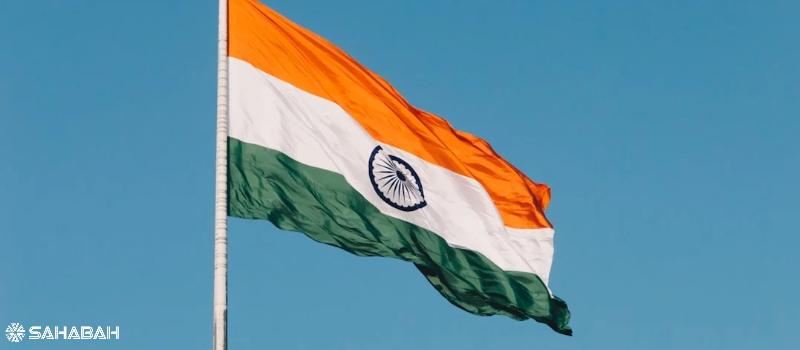India’s relationship with Israel has been a complex and evolving one, marked by a delicate balance between strategic interests, domestic politics, and regional dynamics. As the world’s largest democracy and a rising global power, India’s stance on the Israeli-Palestinian conflict has significant implications for the region and beyond.
In this comprehensive blog post, we will explore the historical context of India-Israel relations, examine India’s current approach to Israel, delve into the multifaceted nature of their cooperation, analyze the ongoing debate around India’s Israel policy, and discuss the implications and future prospects of this dynamic relationship.
The Historical Context of India-Israel Relations
India’s relationship with Israel has undergone a remarkable transformation over the years. Initially, India was a vocal supporter of the Palestinian cause and maintained a distance from Israel, refusing to establish full diplomatic relations until 1992. This stance was largely influenced by India’s own experience with the partition of the Indian subcontinent in 1947 and its sympathy for the plight of the Palestinian people.
However, as the global geopolitical landscape shifted and India’s strategic interests evolved, the country’s approach to Israel began to change. The end of the Cold War, the rise of India’s economic power, and the growing importance of security and defense cooperation led India to gradually warm up to Israel.
India’s Current Approach to Israel
Today, India’s stance on the Israeli-Palestinian conflict is more nuanced and pragmatic. While India continues to support a two-state solution and the Palestinian cause, it has also deepened its engagement with Israel, particularly in the areas of defense, technology, and innovation.
Prime Minister Narendra Modi’s visit to Israel in 2017 was a landmark event, as he became the first Indian prime minister to visit the country. This visit, along with subsequent high-level exchanges, has further strengthened the India-Israel partnership, with the two countries collaborating on a wide range of issues, from counter-terrorism to water management.
Exploring the Multifaceted Nature of India-Israel Cooperation
The India-Israel relationship has evolved beyond the traditional diplomatic and political realms, encompassing a diverse range of areas. One of the most prominent aspects of this cooperation is in the field of defense and security.
India has emerged as one of the largest buyers of Israeli military equipment, including advanced weapons systems, surveillance technologies, and intelligence-sharing. This collaboration has been crucial for India, particularly in the context of its long-standing border disputes with Pakistan and China.
Beyond defense, India and Israel have also forged strong ties in the areas of technology, agriculture, and innovation. Israel’s expertise in areas like water management, renewable energy, and agricultural technology has been of great interest to India, and the two countries have established several joint research and development initiatives.
The Debate Around India’s Israel Policy
India’s growing engagement with Israel has not been without its critics. Some argue that India’s tilt towards Israel has come at the expense of its traditional support for the Palestinian cause, while others contend that India’s balanced approach is necessary to maintain its regional influence and strategic autonomy.
Domestic politics and public opinion also play a role in shaping India’s Israel policy. The ruling Bharatiya Janata Party (BJP) and its ideological affiliates have generally been more supportive of closer ties with Israel, while the opposition Indian National Congress party has been more cautious in its approach.
Implications and Future Prospects of India-Israel Relations
The growing India-Israel partnership has significant implications for the regional and global geopolitical landscape. As India seeks to assert its influence in the Middle East and beyond, its relationship with Israel has become an important factor in its foreign policy calculus.
Looking ahead, the future trajectory of India’s Israel policy will likely be shaped by a complex interplay of strategic, economic, and domestic considerations. While the two countries are expected to continue deepening their cooperation, India will also need to navigate the delicate balance between its ties with Israel and its commitment to the Palestinian cause.
Navigating the Complexities: India’s Balancing Act
India’s approach to the Israeli-Palestinian conflict has been characterized as a “balancing act,” as it seeks to maintain positive relations with both sides. This has involved a careful diplomatic dance, where India has consistently reiterated its support for a two-state solution while also strengthening its ties with Israel.
As India continues to navigate this complex landscape, it will need to carefully manage its relationships with various stakeholders, including the United States, the Arab world, and the international community. The ability to strike a balance between these competing interests will be crucial for India’s long-term regional influence and global standing.
In conclusion, India’s stance on Israel is a multifaceted and evolving issue, shaped by a complex interplay of historical, strategic, and domestic factors. As the country continues to assert its global influence, the India-Israel relationship will undoubtedly remain a key component of its foreign policy, with significant implications for the region and beyond.
FAQ: Does India Support Israel?
India has maintained diplomatic ties with Israel since 1992. While India has traditionally supported Palestine’s right to self-determination, its relations with Israel have significantly improved over the years.
Has Indian Prime Minister Narendra Modi visited Israel?
Yes, Prime Minister Narendra Modi made a historic visit to Israel in 2017, becoming the first Indian Prime Minister to do so.
What is the stance of the Indian government towards Israel and Palestine?
The Indian government has balanced its relations with both Israel and Palestine. While showing support for Israel in various aspects, India has also expressed solidarity with the Palestinian cause.
How are the diplomatic relations between India and Israel?
The diplomatic relations between India and Israel have strengthened over the years, with both countries engaging in cooperation in areas such as defense, technology, and agriculture.
Does India provide support for Israel in international forums?
India has shown support for Israel in some international votes, reflecting a shift in its foreign policy towards more open ties with Israel.
What is the significance of the visit of Israeli Prime Minister Benjamin Netanyahu to India?
The visit of Israeli Prime Minister Benjamin Netanyahu to India in 2018 was seen as a landmark event, highlighting the deepening of ties between the two countries in various strategic areas.
How does the India-Israel relationship impact the region?
The growing partnership between India and Israel has implications for regional politics, especially concerning issues like terrorism, defense cooperation, and technology exchange.





